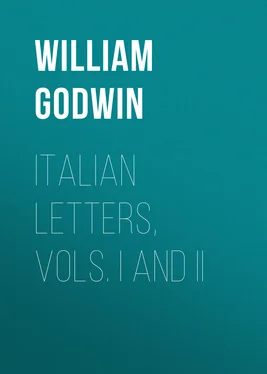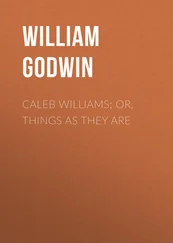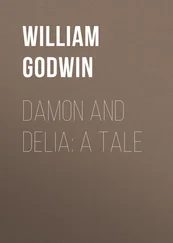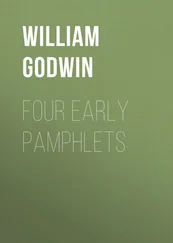William Godwin - Italian Letters, Vols. I and II
Здесь есть возможность читать онлайн «William Godwin - Italian Letters, Vols. I and II» — ознакомительный отрывок электронной книги совершенно бесплатно, а после прочтения отрывка купить полную версию. В некоторых случаях можно слушать аудио, скачать через торрент в формате fb2 и присутствует краткое содержание. Жанр: foreign_prose, История, foreign_edu, foreign_antique, на английском языке. Описание произведения, (предисловие) а так же отзывы посетителей доступны на портале библиотеки ЛибКат.
- Название:Italian Letters, Vols. I and II
- Автор:
- Жанр:
- Год:неизвестен
- ISBN:нет данных
- Рейтинг книги:4 / 5. Голосов: 1
-
Избранное:Добавить в избранное
- Отзывы:
-
Ваша оценка:
- 80
- 1
- 2
- 3
- 4
- 5
Italian Letters, Vols. I and II: краткое содержание, описание и аннотация
Предлагаем к чтению аннотацию, описание, краткое содержание или предисловие (зависит от того, что написал сам автор книги «Italian Letters, Vols. I and II»). Если вы не нашли необходимую информацию о книге — напишите в комментариях, мы постараемся отыскать её.
Italian Letters, Vols. I and II — читать онлайн ознакомительный отрывок
Ниже представлен текст книги, разбитый по страницам. Система сохранения места последней прочитанной страницы, позволяет с удобством читать онлайн бесплатно книгу «Italian Letters, Vols. I and II», без необходимости каждый раз заново искать на чём Вы остановились. Поставьте закладку, и сможете в любой момент перейти на страницу, на которой закончили чтение.
Интервал:
Закладка:
Of all hypocrites this man is the most consummate and the most odious. He dresses his countenance in smiles, while his invention teems with havoc and ruin. He pretends the sincerest good will without feeling one sentiment of disinterested and honest affection. He feigns the warmest attachment that he may the more securely destroy.
This, my friend, is not the crime of an instant, an action into which he is hurried by unexpected temptation, and the momentary violence of passion. He goes about it with deliberation. He lays his plans with all the subtlety of a Machiavel, and all the flagitiousness of a Borgia. He executes them gradually from day to day, and from week to week. And during all this time he dwells upon the luxurious idea, he riots in the misery he hopes to create. He will tell you he loves. Yes, he loves, as the hawk loves the harmless dove, as the tyger loves the trembling kid. And is this the man in whose favour I should ever have been weak enough to entertain a partiality? I would tear him from my bosom like an adder. I would crush him like a serpent.
But your case has not the same aggravations. Here is no father who prizes the honour of his family more than life, and whose heart is bound up in the virtue of his only child. Here is no mother a stranger to disgrace, and who with unremitted vigilance had fought to guard every avenue to the destruction of her daughter. Even the victim herself has never learned the beauty of virgin purity, and does not know the value of that she is about to lose.
And yet, my Rinaldo, after all these deductions, there is something in the story of this uninstructed little innocent, even as stated by him who is ready to destroy her, that greatly interests my wishes in her favour. She does not know it seems all the calamity of the fate that is impending over her. She is blindfolded for destruction. She plays with her ruin, and views with a thoughtless and a partial eye the murderer of her virtue and her happiness.
And, oh, poor helpless nightingale, thought I, How sweet thou sing'st, how near the deadly snare!
But if you do not accept the proposal that is made you, it is but too probable what her fate will be, and how soon the event will take place. And is this an excuse for my friend to offer? Thousands are the iniquities that are now upon the verge of action. An imagination the most fertile in horror can scarcely conceive the crimes that will probably be committed. And shall I therefore with malignant industry forestal the villain in all his black designs? You do not mean it.
Permit me yet to suggest one motive more. A connection like that you have proposed to yourself, might probably make you a father. Of all the charities incident to the human character, those of a parent are abundantly the most exquisite and venerable. And can a man of the smallest sensibility think with calmness, of bringing children into the world to be the heirs of shame? When he gives them life he entails upon them dishonour. The father that should look upon them with joy, as a benefit conferred upon society, and the support of his declining age, regards them with coldness and alienation. The mother who should consider them as her boast and her honour, cannot behold them without opening anew all the sluices of remorse, cannot own them without a blush.
This, my Rinaldo, is what you might do, and in doing it you would perpetrate an action that would occasion to an ingenuous mind an eternal regret. But there is another thing also that you might do, and that a mind, indefatigable in the pursuit of rectitude, as was once that of my friend, would not need to have suggested to it by another. Instead of treasuring up remorse, instead of preparing for an innocent and unsuspecting victim a life of misery and shame, you might redeem her from impending destruction. You might obtain for her an honest and industrious partner, and enable her to acquire the character of a virtuous matron, and a respectable mother of a family.
Reflect for a moment, my dear marquis, on this proposal, which I hope is yet in your power. Think you, that conscious rectitude, that the exultation of your heart when you recollect the temptation you have escaped, and the noble turn you have given it, will not infinitely overbalance the sordid and fleeting pleasure you are able to attain? Imagine to yourself that you see her offspring growing up under the care of a blameless mother, and coming forward to thank you for the benefit you bestowed upon them before they had a being. Is not this an object over which a heart susceptible to one manly feeling may reasonably triumph?
Letter IX
The Count de St. Julian to Signor Hippolito Borelli
Messina
You, my dear Hippolito, were the only one of my fellow-collegians, to whom I communicated all the circumstances of that unfortunate situation which obliged me to take a final leave of the university. The death of a father, though not endeared by the highest reciprocations of mutual kindness, must always make some impressions upon a susceptible mind. The wound was scarcely healed that had been made by the loss of a mother, a fond mother, who by her assiduous attentions had supplied every want, and filled up every neglect, to which I might otherwise have been exposed.
When I quitted Palermo, I resolved before I determined upon any thing, to proceed to the residence of my family at Leontini. My reception was, as I expected, cold and formal. My brother related to me the circumstances of the death of my father, over which he affected to shed tears. He then produced his testament for my inspection, pretended to blame me that though I were the elder, I had so little ingratiated myself in his favour, and added, that he could not think of being guilty of so undutiful a conduct, as to contravene the last dispositions of his father. If however he could be of any use to me in my future plans of life, he would exert himself to serve me.
The next morning I quitted Leontini. My reflexions upon the present posture of my affairs, could not but be melancholy. I was become as it were a native of the world, discarded from every family, cut off from every country. Born to a respectable rank and a splendid fortune, I was precluded in a moment from expectations so reasonable, and an inheritance which I might have hoped at this time to reap. Many there are, I doubt not, who have no faculties by which to comprehend the extent of this misfortune. The loss of possessions sufficiently ample, and of the power and dignity annexed to his character, who is the supporter of an ancient name, they would confess was to be regretted. But I had many resources left. My brother would probably have received me into his family, and I might have been preserved from the sensations of exigency and want. And could I think of being obliged for this to a brother, who had always beheld me with aversion, who was not of a character to render the benefits he conferred insensible to the receiver, and who, it was scarcely to be supposed, had not made use of sinister and ungenerous arts to deprive me of my inheritance? But the houses of the great were still open. My character was untainted, my education had been such as to enable me to be useful in a thousand ways. Ah, my Hippolito, the great are not always possessed of the most capacious minds. There are innumerable little slights and offences that shrink from description, but which are sufficient to keep alive the most mortifying sense of dependency, and to make a man of sensibility, and proud honour constantly unhappy. And must I, who had hoped to be the ornament and boast of my country, thus become a burden to my acquaintance, and a burden to myself?
Such were the melancholy reflexions in which I was engaged. I had left Leontini urged by the sentiments of miscarriage and resentment. I fled from the formality of condolence, and the useless parade of friendship. I would willingly have hid myself from every face I had hitherto known. I would willingly have retired to a desart. My thoughts were all in arms. I revolved a thousand vigorous resolutions without fixing upon one.
Читать дальшеИнтервал:
Закладка:
Похожие книги на «Italian Letters, Vols. I and II»
Представляем Вашему вниманию похожие книги на «Italian Letters, Vols. I and II» списком для выбора. Мы отобрали схожую по названию и смыслу литературу в надежде предоставить читателям больше вариантов отыскать новые, интересные, ещё непрочитанные произведения.
Обсуждение, отзывы о книге «Italian Letters, Vols. I and II» и просто собственные мнения читателей. Оставьте ваши комментарии, напишите, что Вы думаете о произведении, его смысле или главных героях. Укажите что конкретно понравилось, а что нет, и почему Вы так считаете.












